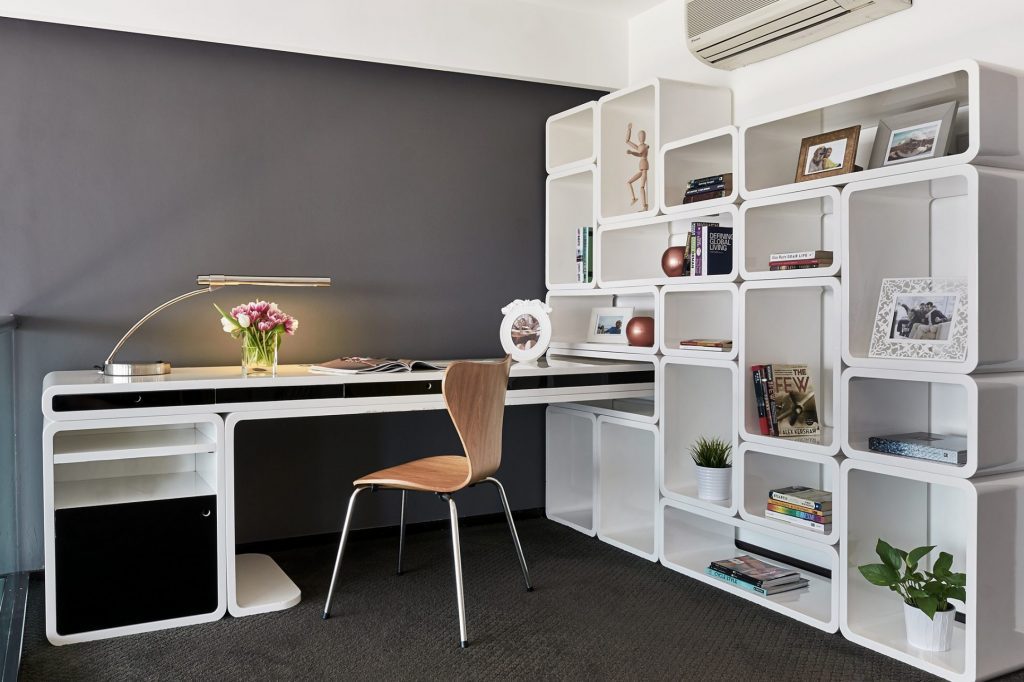Skift Take
Freed from the shackles of the office, the emerging "work from anywhere" trend is tempting for employees — and hotels. Some employers might have a different view.
What happens in Vegas … can now be expensed. With its hotels half full, MGM Resorts is pitching hotel rooms as offices to a workforce that’s getting tired of working from home, and now looking to work from anywhere.
It’s not the only destination capitalizing on a trend that’s been accelerated by the pandemic, as Bermuda and Estonia have shown in their pursuit of the digital nomad. And it certainly won’t be the last. But alongside French hotel giant Accor and serviced apartment operator Ascott, MGM Resorts is among the first hoping to formalize — and scale up — the concept.
Join Us For Our Skift Global Forum Online Conference September 21-23
Negotiating accommodation rates and contracts tends to be something company travel managers deal with, but at this latest cultural crossroads of travel and workspace management, it’s overlapping with company human resources and mobility departments too.
Checking In
Accor launched its Hotel Office program last week, allowing workers to make daytime bookings and use rooms for work — rates will typically be below the average overnight rate. Users book for a single day or can select a five-day package.
The offer is available at 250 hotels across the UK and a further 70 across Europe, with more to be added. Sebastien Bazin, chairman and CEO of Accor, said he expects 5 to 10 percent of its room counts in the future to be used this way.
Ascott has also jumped in, and is transforming some of its serviced apartments into work suites. It launched its global Work in Residence initiative on August 12, but is only accepting bookings for the remainer of the year.
“We are seizing opportunities on the rising telecommuting trend to offer a comprehensive solution for guests to live and work in a safe and private space,” said Leong Teng Wui, Ascott’s chief development officer.
It’s also hoping to coax office-less organizations with “Space-as-a-Service,” offering cloud kitchens and coffee kiosks, live streams and fitness activities in its apartments, as well as parcel collection hubs.
MGM Resorts, however, has a more ambitious program. Pre-Covid, employees wouldn’t typically submit a pool-side massage as a legitimate business travel expense, but the resort group thinks that could change with its Viva Las Office program.
At its Bellagio and Aria resorts it has three packages: Associate, Manager and Executive. The Associate package, at $100 a night, includes a deluxe room, $50 food and beverage credit, $75 voucher with regional airline JSX and the use of an executive assistant.
The top-end Executive package has more extras, including two VIP pool day passes, a poolside massage and full-day cabana rental, but it sets the company back $350 average per night.
Sparking Conversations
Across the Strip, properties are operating at about 50 percent capacity. They usually run 90 percent year-round, so MGM Resorts is targeting companies that have officially announced they’re not bringing people back to the office.
“Our team put two and two together, with the volume of people who are now working from home, and what we could do in terms of our efforts to meet this need,” Atif Rafiq, president of commercial and growth at MGM Resorts, told Skift.
“We’ve had a significant buzz. We had one company reach out to us and ask if they could offer it to their employees. Another enquired if they could do it for a longer period. It’s sparked conversations, and a lot of possibilities,” he added.
Another proposal involved one company wanting to use the program for their new recruits — employees that haven’t yet met in person due to coronavirus restrictions. Rafiq believes they’ll be able to meet each other, familiarize themselves with the company culture and be productive at the same time.
However, while schemes like this could be the ultimate ice breaker and a welcome change of scenery, they’re not fool-proof.
“We’re trying to put a policy together at the moment. We’ve been really flexible with our staff, but in a way it’s opened up a whole new project,” one human resources professional, working for an international company, told Skift. “We need to look at tax, immigration laws, flexible benefits, local legislation and also salary alignments.”
Jo Layton, director of CAP Worldwide Serviced Apartments, agreed. “Does the company have a legal entity in the location, and if not, is there a tax liability for the employer and is the employer potentially forming a business in an employee’s home country by default. It’s one to watch as we come through this pandemic.”
However, the HR expert said there’s already a lot of demand from her staff, and she added that if they were offered the chance to work in a luxury tourist destination, most wouldn’t be too bothered if it came with a salary cut.
MGM Resorts’ Rafiq said the Viva Las Office program was taking these considerations seriously. “We’re thoughtful designing this as a corporate offering,” he said. “An individual decision is very different to a company saying: this is part of how we work, we’re sponsoring this.”
Travel or Work?
Regardless of the professionalism of these programs now being set up by hotel operators and destinations, their success comes down to how much trust employers have in their staff.
If a company had an active travel program before Covid, the HR professional said, it’s more likely they’ll give staff the chance to work from anywhere. “You wouldn’t normally get people traveling if they weren’t trusted, if you didn’t have that relationship with them. There’s a lot about culture here,” she said.
Similarities are also being drawn with “bleisure,” where employees would tag on a holiday before or after a business trip and making the most of the fact that their company is paying for the flights.
“A year ago, this would have been identified as a potential bleisure stay,” said Layton. “In 2020, and during a pandemic, this is a change of emphasis to attract a new target audience that are employed, but are able to take advantage of a flexible working framework.”
While many companies would have turn a blind eye to bleisure arrangements in the past, this kind of distributed workforce proposition clearly can’t be left to the employee’s discretion.
And with a growing number of accommodation providers looking to move into the new product offering, competition may become fierce and the opportunity could be short-lived if companies do revert back to offices. Marriott’s CEO certainly has a contrarian view, and isn’t too happy with companies keeping offices closed into next year, or the fact meeting bans remain in place.
“While we all need to make decisions to protect our people and make sure that we’re not putting people out in risky environments, there’s absolutely no reason for us to be making decisions about what offices look like or what travel looks like in the second quarter of 2021,” Arne Sorenson said.
For now, though, Layton beleives the concept is now on the agenda for many hoteliers, owners, investors and board teams who are trying to understand and react to the impact of the pandemic on their next five years of trading.
MGM Resorts’ Rafiq is looking further ahead. “We’re looking to identify new visitation patterns. We want it to stick. Remote work is here to stay, and I see this as an evergreen offering for a company.”
It’s a gamble, but one that’s worth it in these extraordinary times.
Register Now For Skift Global Forum, Happening Online September 21-23
The Daily Newsletter
Our daily coverage of the global travel industry. Written by editors and analysts from across Skift’s brands.
Have a confidential tip for Skift? Get in touch
Tags: accor, ascott, business travel, coronavirus, corporate travel management, hotels, las vegas, mgm resorts
Photo credit: MGM Resorts has devised packages that turn rooms at its properties, including Aria, into offices. MGM Resorts

